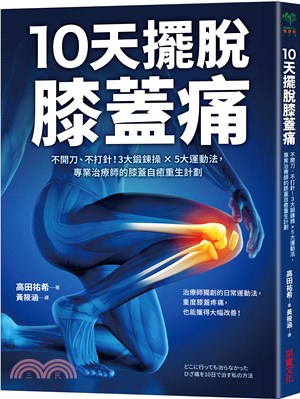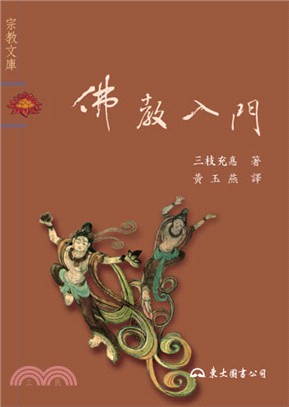定價
:NT$ 6050 元若需訂購本書,請電洽客服 02-25006600[分機130、131]。
相關商品
商品簡介
作者簡介
商品簡介
For many years now, there has been a strong economic scholarship pointing to the importance of institutions in general - and, more particularly, legal rules and the rule of law - for economic development. The importance of law for economic growth has also been empirically tested in many well-known and often cited studies. These studies seem to indicate not only that law is relevant in the development of countries and their economic growth in particular, but more specifically, that particular legal systems do better than others. The tenant of this scholarship (especially initiated by Andrej Schleifer and others) is that the common law would be a more efficient system in promoting economic growth than the civil law. However, many scholars doubt the empirical claim of this and criticize these findings, both on methodological grounds as well as on grounds of a misconception of differences between the civil and the common law. The interest in legal origins for the efficiency of the legal system also focuses on particular legal regimes, such as accident law, environmental law, or corporate law. Increasingly, the question is also asked whether legal institutions and the rule of law are also important in the process whereby poor nations develop their economy. For example, Cooter, Schafer, and Ulen have attempted to examine why particular developing countries do relatively better than others and, roughly speaking, also attribute (part of the) success of some developing countries to legal institutions. However, others (more particularly Ulen) point at the fact that legal rules may play some role, but perhaps only a modest role in economic development. A powerful example which is quoted in that respect is the one of China which, at least at first blush, does not seem to rely strongly on legal institutions (at least in the traditional sense) and nevertheless has experienced a spectacular economic growth. The particular case of China hence remains somewhat puzzling in this debate. So far, these various streams of literature paying attention to the question to what extent legal origins matter for economic growth have not been strongly integrated and have, to a large extent, been developed in separate social sciences (institutional economics, development economics, and comparative law). This multi-disciplinary book brings these approaches together in an integrated and structural manner. (Series: Ius Commune Europaeum - Vol. 100)
作者簡介
Michael G. Faure (LL.M) studied law at the University of Antwerp (licenciate in law 1982) and criminology at the University of Gent (licenciated in criminology 1983). He obtained a Master of Laws from the University of Chicago Law School (1984) and a doctor iuris from the Albert Ludwigs Universität Freiburg im Breisgau. He was first a lecturer and then a senior lecturer at the department of criminal law of the law faculty of Leiden University (1988-1999) and became academic director of the Maastricht European institute for transnational legal research (METRO) and professor of Comparative and International Environmental Law at the law faculty of Maastricht University in September 1991. He still holds both positions today. In addition, he is academic director of the Ius Commune Research School and member of the board of directors of Ectil. Since the first of February 2008, he is half time professor of comparative private law and economics at the Rotterdam Insitute of Law & Economics (RILE) of the Erasmus University in Rotterdam and academic director of the European Doctorate in Law and Economics (EDLE) programme. Since 1982 he is equally attorney at the Antwerp Bar. He publishes in the areas of environmental (criminal) law, tort and insurance and economic analysis of (accident) law.
Jan Smits holds the Chair of European Private Law at Maastricht University and is the academic director of the Maastricht European Private Law Institute (MEPLI). After his study of law at the universities of Leiden and Poitiers (1986-1991), he defended his PhD at the University of Leiden (1995), developing a theory of how contractual liability can be best explained. In 1995 and 1996 he taught at the universities of Stellenbosch and Tilburg. He then was appointed at Maastricht University, first (1996-1999) as an associate professor and then (1999) to the newly created Chair of European Private Law (the first chair for this field worldwide). At Maastricht, Jan led the private law research group of the Ius Commune Research School. From 2008 to 2010, he was distinguished professor of European Private Law and Comparative Law at Tilburg University, a post he gave up in late 2010 to return to Maastricht and found the Maastricht European Private Law Institute. He held visiting positions at a number of foreign institutions, including Tulane Law School, Leuven University, the University of Liège, Louisiana State University, the Penn State Dickinson School of Law and the University of Helsinki. From 2010-2012, he held the HiiL Visiting Chair on the Internationalisation of Law and in 2013-2014 the TPR Visiting Chair at the University of Ghent. Jan Smits is an elected member of the Royal Netherlands Academy of Arts and Sciences (KNAW).
Jan Smits holds the Chair of European Private Law at Maastricht University and is the academic director of the Maastricht European Private Law Institute (MEPLI). After his study of law at the universities of Leiden and Poitiers (1986-1991), he defended his PhD at the University of Leiden (1995), developing a theory of how contractual liability can be best explained. In 1995 and 1996 he taught at the universities of Stellenbosch and Tilburg. He then was appointed at Maastricht University, first (1996-1999) as an associate professor and then (1999) to the newly created Chair of European Private Law (the first chair for this field worldwide). At Maastricht, Jan led the private law research group of the Ius Commune Research School. From 2008 to 2010, he was distinguished professor of European Private Law and Comparative Law at Tilburg University, a post he gave up in late 2010 to return to Maastricht and found the Maastricht European Private Law Institute. He held visiting positions at a number of foreign institutions, including Tulane Law School, Leuven University, the University of Liège, Louisiana State University, the Penn State Dickinson School of Law and the University of Helsinki. From 2010-2012, he held the HiiL Visiting Chair on the Internationalisation of Law and in 2013-2014 the TPR Visiting Chair at the University of Ghent. Jan Smits is an elected member of the Royal Netherlands Academy of Arts and Sciences (KNAW).
主題書展
更多
主題書展
更多書展本週66折
您曾經瀏覽過的商品
購物須知
外文書商品之書封,為出版社提供之樣本。實際出貨商品,以出版社所提供之現有版本為主。部份書籍,因出版社供應狀況特殊,匯率將依實際狀況做調整。
無庫存之商品,在您完成訂單程序之後,將以空運的方式為你下單調貨。為了縮短等待的時間,建議您將外文書與其他商品分開下單,以獲得最快的取貨速度,平均調貨時間為1~2個月。
為了保護您的權益,「三民網路書店」提供會員七日商品鑑賞期(收到商品為起始日)。
若要辦理退貨,請在商品鑑賞期內寄回,且商品必須是全新狀態與完整包裝(商品、附件、發票、隨貨贈品等)否則恕不接受退貨。
























